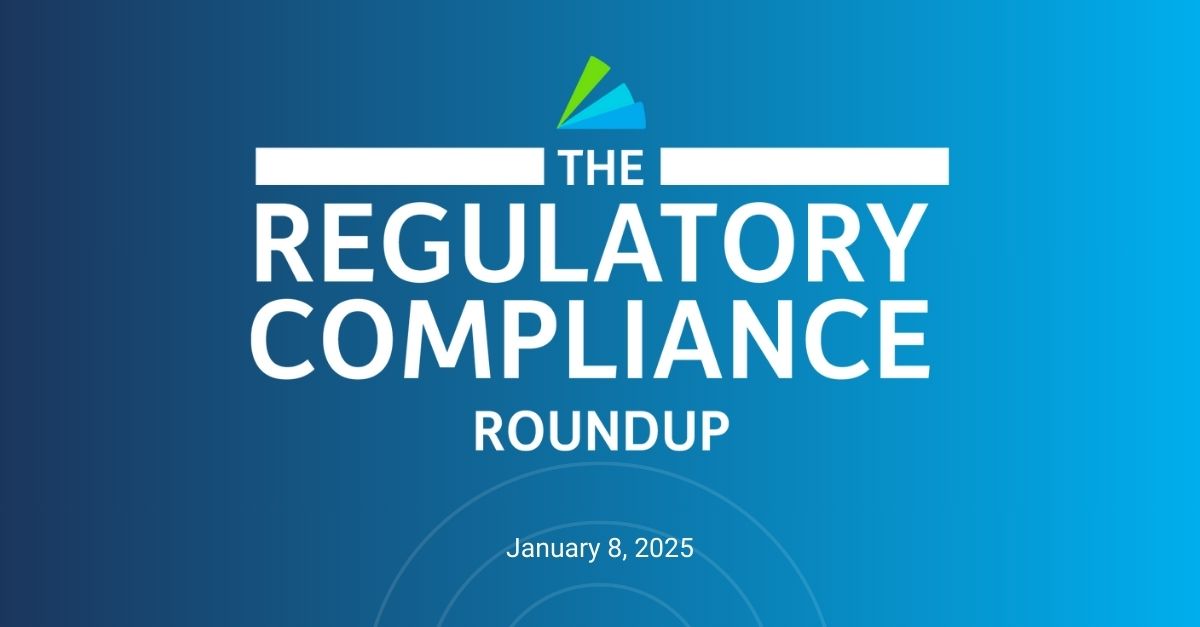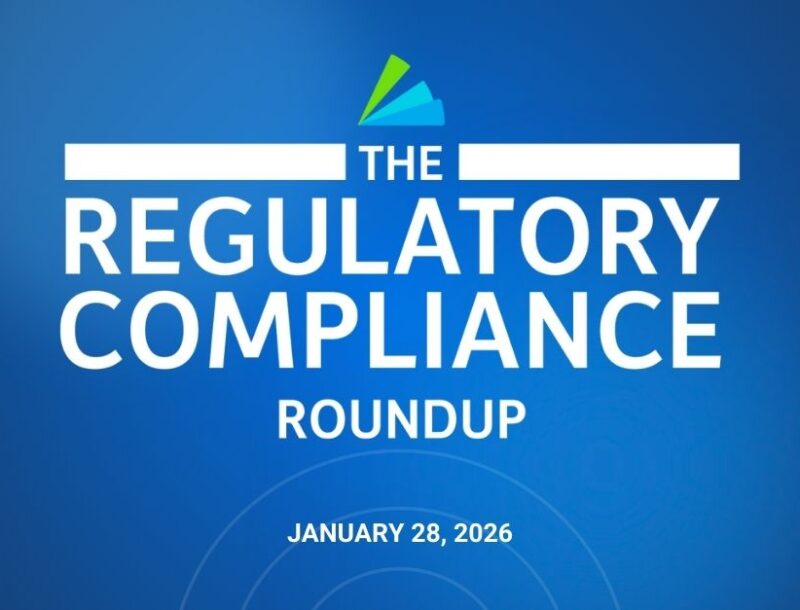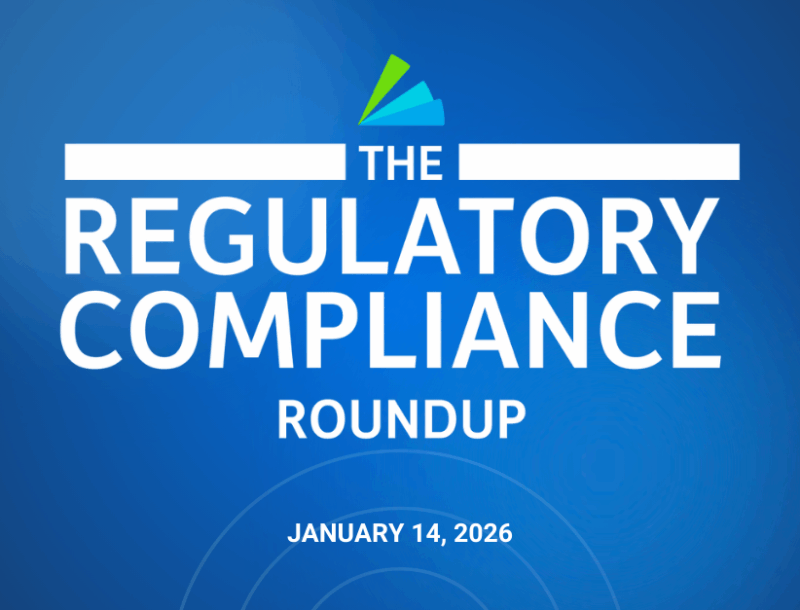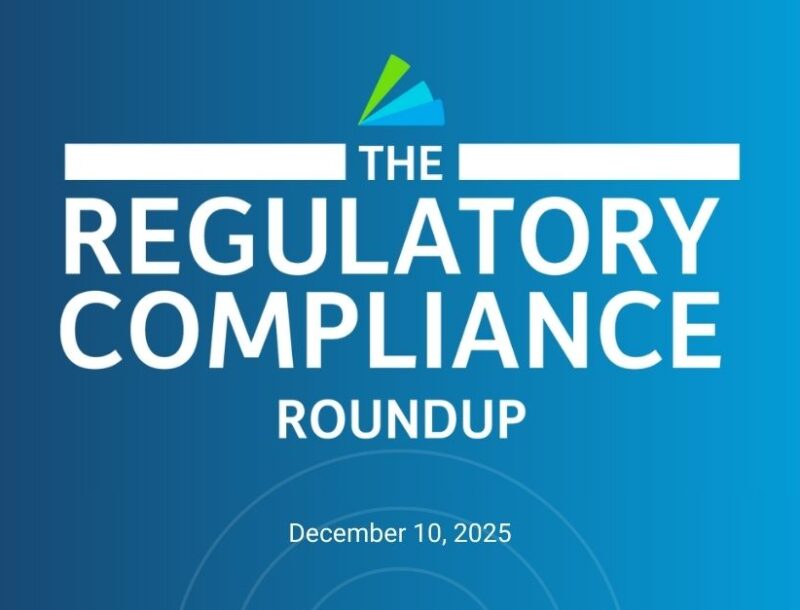The Roundup: CFPB Sued Over Overdraft Rule, Top Enforcement Actions Against Banks, and Mortgage Pros Prepping for 2025

Welcome to the PerformLine Regulatory Compliance Roundup, home of the latest news, articles, and reports from our industry, curated for you. Let’s get into it.
In this edition: Trade groups sue the CFPB over new overdraft rule, the FTC refers case against online cash advance firm to the Department of Justice, the CFPB takes aim at gambling card fees, top enforcement actions against banks in 2024, how mortgage compliance professionals are preparing for 2025, and the CFPB issues their fall regulatory agenda.
Do you want to be the first to know when the Regulatory Roundup is released? Subscribe to never miss an email and follow us on LinkedIn for even more updates on marketing compliance.
Trade Groups Sue CFPB Over Overdraft Rule
Several banking trade groups and financial institutions have filed a lawsuit against the CFPB, challenging its new rule that caps overdraft fees at $5 for banks with assets of $10 billion or more. The plaintiffs argue that the CFPB has overstepped its authority, claiming the rule misinterprets the Truth in Lending Act by imposing price caps on services not classified as credit. They also express concern that the regulation could limit consumers’ access to essential liquidity provided by overdraft services. The CFPB, however, defends the rule as a necessary measure to enhance transparency and protect consumers, estimating it will save them $5 billion annually when it takes effect on October 1, 2025.
FTC Refers Case Against Online Cash Advance Firm to Department of Justice
The FTC has referred a case to the Department of Justice (DOJ) against an online cash advance company, alleging deceptive marketing practices. The company is accused of misleading consumers by advertising cash advances up to $500, which many users did not receive, and charging undisclosed fees. The DOJ’s complaint seeks consumer redress, civil penalties, and a permanent injunction to prevent future violations. In response, the company has updated its fee structure, removing optional tips and express fees for its cash advance product.
Significant Stat: $25 million: The total settlement amount that a food delivery platform must pay for engaging in an array of unfair and deceptive practices. Read more
CFPB Takes Aim at Gambling Card Fees
The CFPB has raised concerns about credit card issuers applying substantial cash advance fees to online sports betting transactions. As online sports gambling has become legal in numerous states, the CFPB observed that some issuers treat these transactions as cash advances, imposing fees of $10 or more, regardless of the wager’s size. This practice can result in disproportionately high fees for smaller bets, catching consumers off guard due to a lack of clear disclosures. The CFPB suggests that state gaming regulators consider restricting or enhancing transparency around the use of credit cards for online sports betting to protect consumers from unexpected charges.
Top Enforcement Actions Against Banks in 2024
In 2024, U.S. banking regulators intensified enforcement actions, issuing over 120 penalties for violations, including inadequate third-party management, anti-money laundering (AML) deficiencies, and consumer protection failures. Notably, the OCC tripled its formal enforcement actions compared to 2023. The collapse of a key banking-as-a-service provider in April left customers without access to funds, prompting several banks to exit the BaaS sector. Additionally, significant AML compliance failures were identified, with one major bank facilitating over $670 million in illicit transactions due to risk management shortcomings. This surge in regulatory scrutiny underscores a renewed focus on compliance within the banking industry.
How Mortgage Compliance Professionals Are Preparing for 2025
Mortgage compliance professionals are gearing up for 2025 by addressing challenges such as rising interest rates, shifting generational attitudes toward homeownership, and anticipated regulatory changes. To navigate these complexities, many are turning to compliance technology solutions to enhance efficiency and ensure adherence to new regulations.
CFPB Issues Fall Regulatory Agenda
The CFPB has released its Fall Regulatory Agenda, outlining plans to finalize several rules by October 2025. Notably, the CFPB intends to issue final regulations on the use of medical debts in credit reports and the charging of non-sufficient funds fees for declined transactions by December 2024. Additionally, a rule aimed at simplifying mortgage servicing is expected by July 2025. However, with the upcoming change in administration, the future of these regulatory initiatives remains uncertain, as new leadership may alter the CFPB’s direction.


